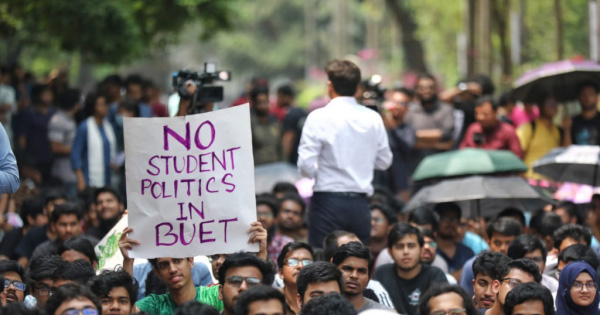Bangladesh finds itself at a critical juncture as its economic challenges deepen, exacerbated by recent foreign rating downgrades and looming threats to its financial stability. The latest action by Fitch Ratings, placing the country on a “negative” outlook, underscores the urgency of addressing structural weaknesses and implementing bold reforms to avert a full-blown economic crisis.
At the heart of Bangladesh’s economic woes lies the alarming depletion of foreign currency reserves, a trend that has raised concerns among investors and policymakers alike. Fitch’s warning that reserves may only be sufficient to cover three months’ worth of imports by the end of 2023 highlights the precarious nature of the country’s external position. With reserves falling by 19 percent in the first nine months of the year, urgent measures are needed to shore up liquidity and restore confidence in the economy. The decline in reserves is symptomatic of broader macroeconomic imbalances, including a widening current account deficit and tepid revenue growth. Despite robust economic growth in recent years, Bangladesh has struggled to translate this expansion into sustainable fiscal outcomes. The government’s failure to meet revenue targets, coupled with escalating expenditure pressures, has contributed to widening fiscal deficits and mounting debt levels.
According to Fitch, Bangladesh’s gross general government revenue as a percentage of GDP remains well below the ‘BB’ median, reflecting the challenges of mobilizing resources in an efficient and equitable manner. With the fiscal deficit projected to reach 5.3 percent of GDP this fiscal year, concerns about debt sustainability and fiscal discipline loom large. Without decisive action to boost revenue mobilization and rationalize expenditure, Bangladesh risks entering a vicious cycle of fiscal deterioration and debt distress. The erosion of fiscal buffers has also exposed Bangladesh to external shocks, including volatility in global commodity markets and adverse shifts in investor sentiment. The government’s reliance on external financing to bridge the fiscal gap underscores the vulnerability of its economic model to changes in global liquidity conditions and borrowing costs. As borrowing costs rise and access to international capital markets becomes more challenging, Bangladesh may find itself facing heightened refinancing risks and liquidity pressures.
The recent downgrades by Fitch and Standard and Poor’s reflect growing skepticism about Bangladesh’s ability to navigate these challenges and maintain macroeconomic stability. While both rating agencies have maintained Bangladesh’s sovereign credit rating at BB-, the negative outlook signals a heightened risk of further downgrades in the absence of corrective action. This downgrade not only undermines investor confidence but also raises borrowing costs for the government and private sector, further exacerbating fiscal strains. Critics argue that the government’s response to the crisis has been inadequate, characterized by piecemeal measures and a lack of coherent policy direction. Despite calls for fiscal consolidation and structural reforms, progress has been slow, hampered by political considerations and bureaucratic inertia. The absence of a credible roadmap for fiscal sustainability and economic reform has only served to deepen uncertainty and erode investor confidence.
In addition to macroeconomic challenges, Bangladesh faces a range of structural impediments to long-term growth and development. These include weak institutional capacity, inadequate infrastructure, and a challenging business environment characterized by red tape and corruption. While efforts have been made to address some of these issues, progress has been uneven, with entrenched interests often obstructing meaningful change.
Against this backdrop, the government’s decision to embark on ambitious development projects funded by external sources raises questions about its priorities and financial prudence. While investments in infrastructure and human capital are essential for long-term growth, the timing and scale of these projects warrant scrutiny, particularly given the country’s fragile fiscal position. Critics argue that the government’s focus should be on restoring macroeconomic stability and implementing reforms that address the root causes of the crisis.
Looking ahead, Bangladesh faces a daunting task in navigating the twin challenges of macroeconomic instability and structural reform. To restore confidence and put the economy back on a sustainable growth trajectory, bold and decisive action is needed on multiple fronts. This includes strengthening fiscal discipline, enhancing revenue mobilization, improving governance and transparency, and fostering a more conducive environment for private sector-led growth.
While the road ahead may be challenging, Bangladesh has demonstrated resilience in the face of adversity before. With political will, sound policies, and support from the international community, it can overcome the current crisis and emerge stronger and more resilient in the years to come. The stakes are high, but the potential rewards of successful reform are even greater. Now is the time for bold leadership and decisive action to secure Bangladesh’s economic future.







